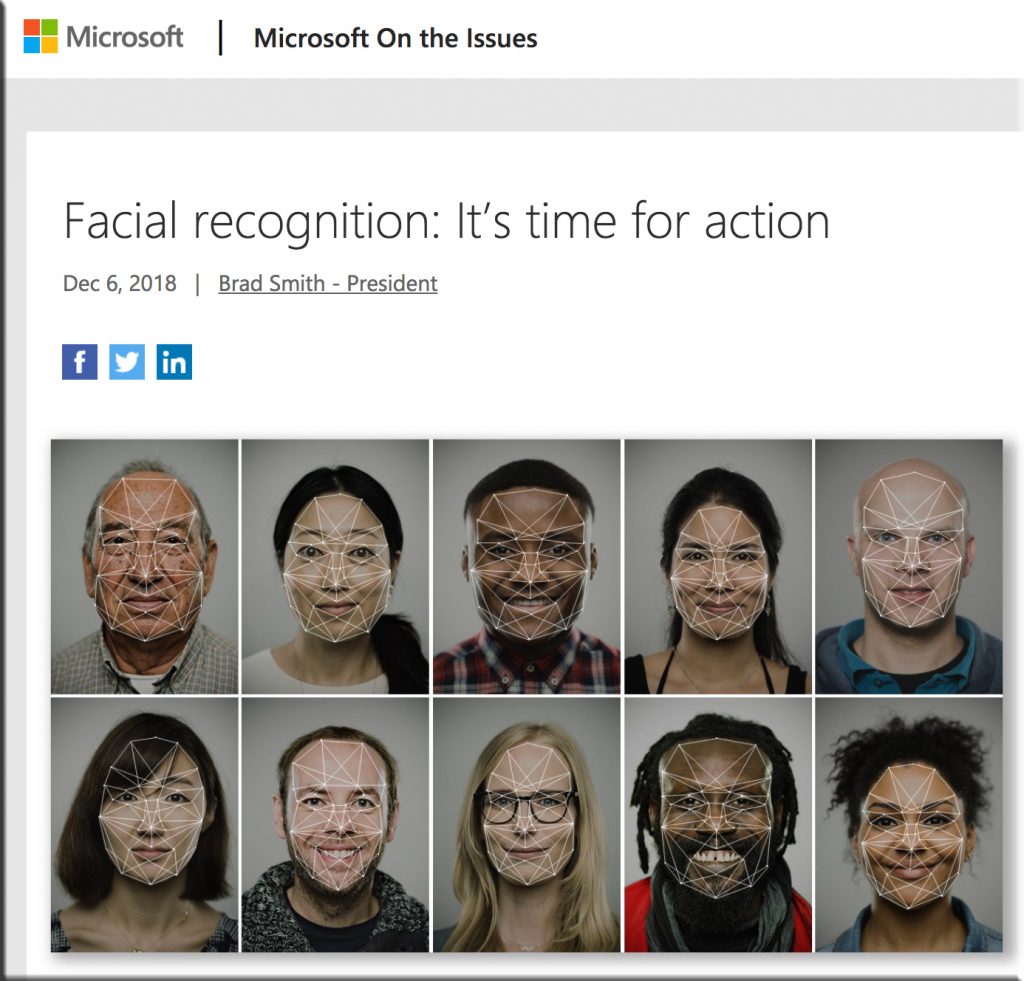AI Now Report 2018 | December 2018 — from ainowinstitute.org
Meredith Whittaker , AI Now Institute, New York University, Google Open Research
Kate Crawford , AI Now Institute, New York University, Microsoft Research
Roel Dobbe , AI Now Institute, New York University
Genevieve Fried , AI Now Institute, New York University
Elizabeth Kaziunas , AI Now Institute, New York University
Varoon Mathur , AI Now Institute, New York University
Sarah Myers West , AI Now Institute, New York University
Rashida Richardson , AI Now Institute, New York University
Jason Schultz , AI Now Institute, New York University School of Law
Oscar Schwartz , AI Now Institute, New York University
With research assistance from Alex Campolo and Gretchen Krueger (AI Now Institute, New York University)
Excerpt (emphasis DSC):
Building on our 2016 and 2017 reports, the AI Now 2018 Report contends with this central problem, and provides 10 practical recommendations that can help create accountability frameworks capable of governing these powerful technologies.
- Governments need to regulate AI by expanding the powers of sector-specific agencies to oversee, audit, and monitor these technologies by domain.
- Facial recognition and affect recognition need stringent regulation to protect the public interest.
- The AI industry urgently needs new approaches to governance. As this report demonstrates, internal governance structures at most technology companies are failing to ensure accountability for AI systems.
- AI companies should waive trade secrecy and other legal claims that stand in the way of accountability in the public sector.
- Technology companies should provide protections for conscientious objectors, employee organizing, and ethical whistleblowers.
- Consumer protection agencies should apply “truth-in-advertising” laws to AI products and services.
- Technology companies must go beyond the “pipeline model” and commit to addressing the practices of exclusion and discrimination in their workplaces.
- Fairness, accountability, and transparency in AI require a detailed account of the “full stack supply chain.”
- More funding and support are needed for litigation, labor organizing, and community participation on AI accountability issues.
- University AI programs should expand beyond computer science and engineering disciplines. AI began as an interdisciplinary field, but over the decades has narrowed to become a technical discipline. With the increasing application of AI systems to social domains, it needs to expand its disciplinary orientation. That means centering forms of expertise from the social and humanistic disciplines. AI efforts that genuinely wish to address social implications cannot stay solely within computer science and engineering departments, where faculty and students are not trained to research the social world. Expanding the disciplinary orientation of AI research will ensure deeper attention to social contexts, and more focus on potential hazards when these systems are applied to human populations.
Also see:
After a Year of Tech Scandals, Our 10 Recommendations for AI — from medium.com by the AI Now Institute
Let’s begin with better regulation, protecting workers, and applying “truth in advertising” rules to AI
Also see:
Excerpt:
As we discussed, this technology brings important and even exciting societal benefits but also the potential for abuse. We noted the need for broader study and discussion of these issues. In the ensuing months, we’ve been pursuing these issues further, talking with technologists, companies, civil society groups, academics and public officials around the world. We’ve learned more and tested new ideas. Based on this work, we believe it’s important to move beyond study and discussion. The time for action has arrived.
We believe it’s important for governments in 2019 to start adopting laws to regulate this technology. The facial recognition genie, so to speak, is just emerging from the bottle. Unless we act, we risk waking up five years from now to find that facial recognition services have spread in ways that exacerbate societal issues. By that time, these challenges will be much more difficult to bottle back up.
In particular, we don’t believe that the world will be best served by a commercial race to the bottom, with tech companies forced to choose between social responsibility and market success. We believe that the only way to protect against this race to the bottom is to build a floor of responsibility that supports healthy market competition. And a solid floor requires that we ensure that this technology, and the organizations that develop and use it, are governed by the rule of law.
From DSC:
This is a major heads up to the American Bar Association (ABA), law schools, governments, legislatures around the country, the courts, the corporate world, as well as for colleges, universities, and community colleges. The pace of emerging technologies is much faster than society’s ability to deal with them!The ABA and law schools need to majorly pick up their pace — for the benefit of all within our society.









